 W
WThe American Geosciences Institute (AGI) is a nonprofit federation of about 50 geoscientific and professional organizations that represents geologists, geophysicists, and other earth scientists. The organization was founded in 1948. The name of the organization was changed from the American Geological Institute on October 1, 2011. The organization's offices are in Alexandria, Virginia.
 W
WThe American Theological Library Association (Atla) is a nonprofit, 501(c)(3), professional association, headquartered in Chicago, Illinois, United States. Atla's member libraries and librarians provide resources for scholarly research to tens of thousands of students, faculty, staff, and administrators. The association supports the membership with services and products, including an annual conference, members-only publications and discounts, and professional development opportunities.
 W
WEBSCO Information Services, headquartered in Ipswich, Massachusetts, is a division of EBSCO Industries Inc., a private company headquartered in Birmingham, Alabama. EBSCO provides products and services to libraries of very many types around the world. Its products include EBSCONET, a complete e-resource management system, and EBSCOhost, which supplies a fee-based online research service with 375 full-text databases, a collection of 600,000-plus ebooks, subject indexes, point-of-care medical references, and an array of historical digital archives. In 2010, EBSCO introduced its EBSCO Discovery Service (EDS) to institutions, which allows searches of a portfolio of journals and magazines.
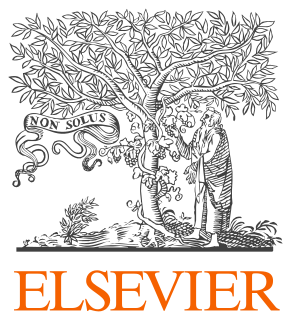 W
WElsevier is a Netherlands-based information and analytics company specializing in scientific, technical, and medical content. It is a part of the RELX Group, known until 2015 as Reed Elsevier. Its products include journals such as The Lancet and Cell, the ScienceDirect collection of electronic journals, the Trends and Current Opinion series of journals, the online citation database Scopus, SciVal, a tool that measures research performance, the ClinicalKey search engine for clinicians, and ClinicalPath evidence-based cancer care service. Elsevier's products also include digital tools for data management, instruction, and assessment.
 W
WThe Energy Technology Data Exchange (ETDE) was formed in 1987 and officially ended 30 June 2014. It was initiated as a multilateral agreement under the International Energy Agency (IEA) agreement network, replacing numerous other bilateral agreements. The multilateral agreement was for the international exchange of energy research and development and information. The exchange resulted in a database which was the world's largest collection of energy research, technology, and development (RTD) information. The collection of information was generated from energy RTD literature published in member countries and through other partnering arrangements with organizations such as the International Nuclear Information System. This had the effect of creating a broad spectrum of information that was included in the ETDE database. The range of content included fossil fuels, renewable energies, End-Use, fusion, energy policy, conservation, and efficiency, and cross-sectional activities. This fulfilled the need for timely exchange of global information towards the goal of a sustainable energy future. ETDE operated under an IEA Implementing Agreement and was governed by an Executive Committee of delegates from ETDE member countries. Officers of the Executive Committee included a Chair and two Vice-Chairs, elected to three-year terms. Day-to-day operations were managed through an operating agent organization, which reported to the Executive Committee.
 W
WGale is an educational publishing company based in Farmington Hills, Michigan, west of Detroit. It has been a division of Cengage since 2007.
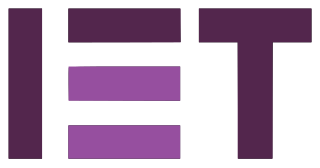 W
WThe Institution of Engineering and Technology (IET) is a multidisciplinary professional engineering institution. The IET was formed in 2006 from two separate institutions: the Institution of Electrical Engineers (IEE), dating back to 1871, and the Institution of Incorporated Engineers (IIE) dating back to 1884. Its worldwide membership is currently in excess of 168,000. The IET's main offices are in Savoy Place in London, England and at Michael Faraday House in Stevenage, England.
 W
WThe Latin American and Caribbean Center on Health Sciences Information or BIREME was founded in São Paulo in 1967 as the Biblioteca Regional de Medicina, a specialized center of the Pan-American Health Organization (PAHO) / World Health Organization (WHO).
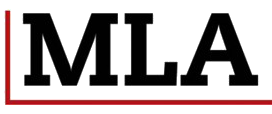 W
WThe Modern Language Association of America, often referred to as the Modern Language Association (MLA), is the principal professional association in the United States for scholars of language and literature. The MLA aims to "strengthen the study and teaching of language and literature". The organization includes over 25,000 members in 100 countries, primarily academic scholars, professors, and graduate students who study or teach language and literature, including English, other modern languages, and comparative literature. Although founded in the United States, with offices in New York City, the MLA's membership, concerns, reputation, and influence are international in scope.
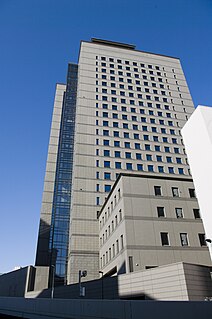 W
WThe National Institute of Informatics is a Japanese research institute located in Chiyoda, Tokyo, Japan. NII was established in April 2000 for the purpose of advancing the study of informatics. This institute is also devoted to creating a system to facilitate the spread of scientific information to the general public. NII is the only comprehensive research institute in Japan in informatics. It also oversees and maintains a large, searchable information database on a variety of scientific and non-scientific topics called Webcat.
 W
WOCLC, Inc., doing business as OCLC, is an American nonprofit cooperative organization "dedicated to the public purposes of furthering access to the world's information and reducing information costs". It was founded in 1967 as the Ohio College Library Center, then became the Online Computer Library Center as it expanded. In 2017, the name was formally changed to OCLC, Inc. OCLC and its member libraries cooperatively produce and maintain WorldCat, the largest online public access catalog (OPAC) in the world. OCLC is funded mainly by the fees that libraries pay for the many different services it offers. OCLC also maintains the Dewey Decimal Classification system.
 W
WThe Philosopher's Information Center is a nonprofit, educational organization. It was founded in 1967 by Richard H. Lineback, who continues to serve as president.
 W
WThe Philosophy Documentation Center (PDC) is a non-profit publisher and resource center that provides access to scholarly materials in applied ethics, classics, philosophy, religious studies, and related disciplines. It publishes academic journals, conference proceedings, anthologies, and online research databases, often in cooperation with scholarly and professional associations. It also provides membership management and electronic publishing services, and hosts electronic journals, series, and other publications from several countries.
 W
WProQuest LLC is an Ann Arbor, Michigan-based global information-content and technology company, founded in 1938 as University Microfilms by Eugene B. Power. ProQuest provides applications and products for libraries. Its resources and tools support research and learning, publishing and dissemination, and the acquisition, management and discovery of library collections.
 W
WThomson Reuters Corporation is a Canada based multinational media conglomerate. The company was founded in Toronto, Ontario, Canada, where it is headquartered at 333 Bay Street.
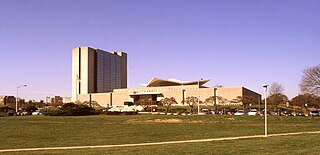 W
WThe United States National Library of Medicine (NLM), operated by the United States federal government, is the world's largest medical library.
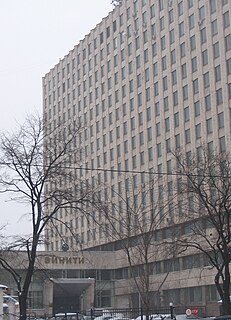 W
WVINITI is a subsidiary of the Russian Academy of Sciences devoted to gathering scientific and technical information from sources throughout the world and disseminating this information to Russian scientific community.
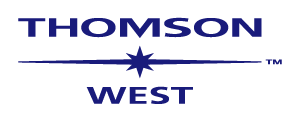 W
WWest is a business owned by Thomson Reuters that publishes legal, business, and regulatory information in print, and on electronic services such as Westlaw. Since the late 19th century, West has been one of the most prominent publishers of legal materials in the United States. Its headquarters is in Eagan, Minnesota; it also had an office in Rochester, New York, until it closed in 2019, and it had an office in Cleveland, Ohio, until it closed in 2010. Organizationally, West is part of the global legal division of Thomson Reuters.